February 5th, 2025
As any DIY mechanic knows, snapping a rusted bolt, dropping a tool into the engine, or struggling with stuck spark plugs can quickly turn a simple repair into a hellscape. But how bad can it get? We’ve collected some of the most harrowing real-life stories from Reddit’s automotive boards as cautionary tales to help you avoid these mechanical nightmares.
1. The Broken Bolt From Hell
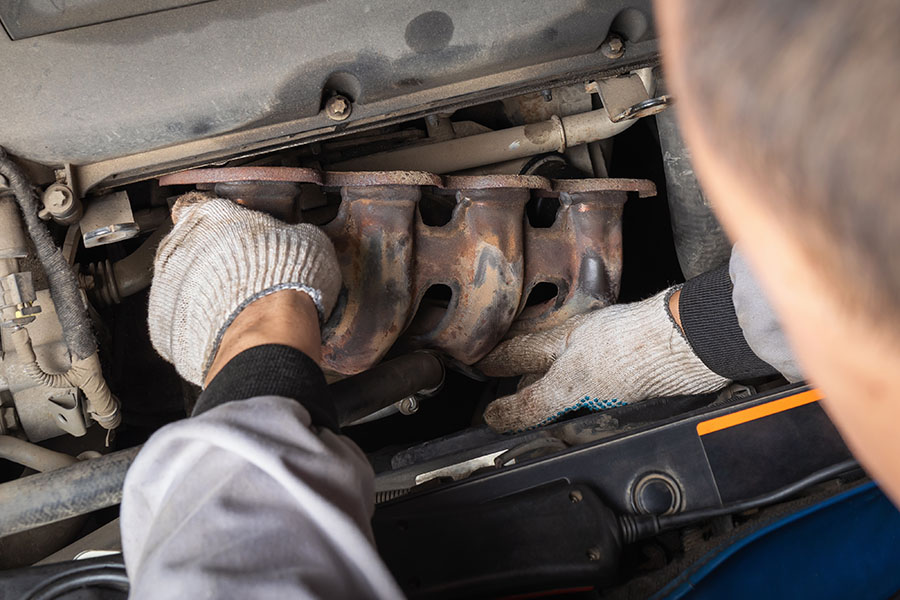
One Redditor (u/EngineMishap) shared their terrifying experience with a seemingly simple exhaust manifold replacement on their 2008 Subaru. Six hours into what should have been a two-hour job, they snapped the last manifold bolt flush with the head. What followed was a 14-hour odyssey involving three broken extractors, a welder and eventually partial head removal – turning a $200 repair into a $2,000 nightmare.
Prevention & Solution:
- Always soak rusty bolts with INOX MX3 for at least 24 hours before attempting removal
- Heat cycling with a torch can help break rust bonds
- If a bolt feels too tight, stop immediately and apply more INOX MX3
- For severely rusted bolts, consider welding a nut to the broken shaft
- Keep a set of drill bits and quality bolt extractors in your toolkit
2. The Engine Bay Black Hole
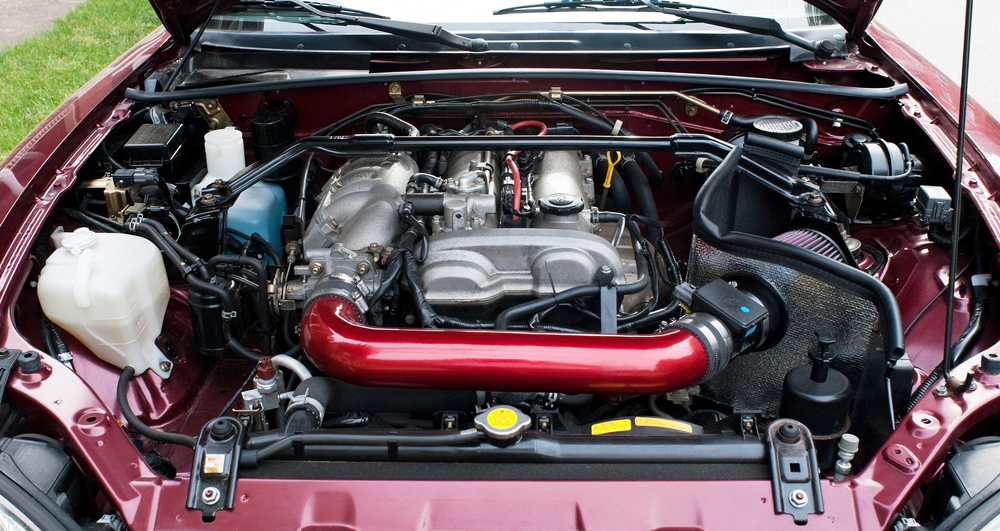
“I still have nightmares about this,” writes u/ToolDropper2019, describing how a dropped 10mm socket led to catastrophic engine failure in their restored Mazda RX-7. The socket found its way into a timing cover opening, and upon startup, it decimated their rotary engine. Total damage: $4,000 and three months of rebuilt work destroyed in seconds.
Prevention & Solution:
- Always stuff clean rags into any exposed openings
- Use magnetic tool trays positioned strategically around your work area
- Invest in a flexible magnetic pickup tool and inspection camera
- Consider wearing a magnetic wristband for small parts
- Document the location of every removed part with photos
- Never start the engine until you’ve accounted for all tools
3. Cross-Threading Catastrophe
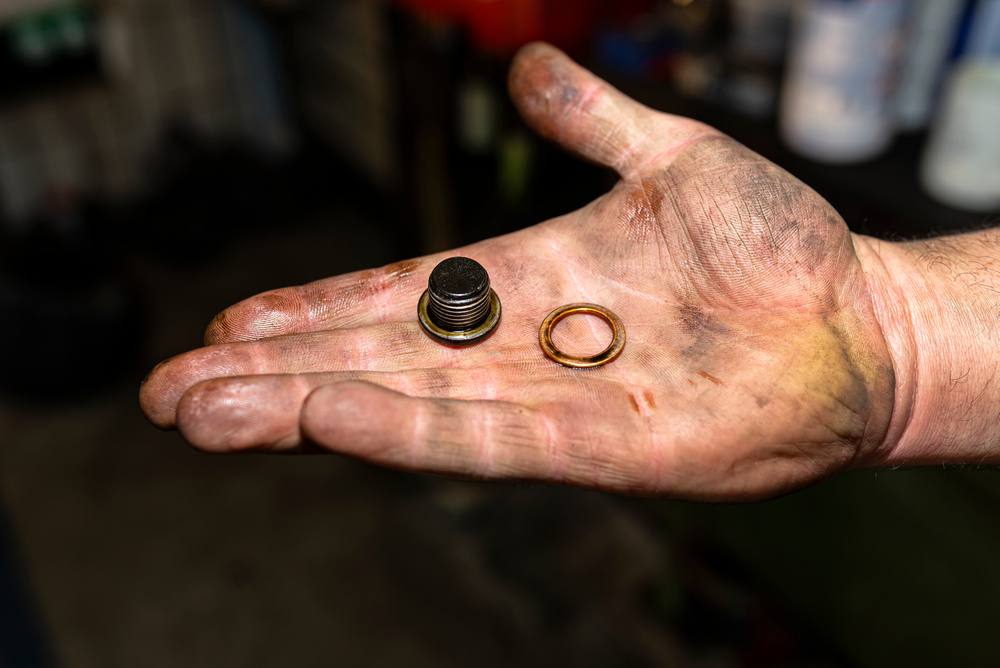
A heart-stopping tale from u/ThreadKiller describes cross-threading an oil pan bolt on a BMW M3. “I thought I could just force it,” they admitted. The resulting stripped threads in the aluminum pan led to a massive oil leak on the highway, causing engine seizure and requiring a complete engine replacement. The $20 oil change spiraled into a $12,000 disaster.
Prevention & Solution:
- Always start threads by hand, never with power tools
- If you feel unusual resistance, back out and try again
- Use a thread checker to verify proper thread pitch
- Keep thread repair kits in your toolbox
- Consider using a torque wrench for critical fasteners
- When in doubt, seek professional help rather than forcing it
4. The Battery Bolt Barbecue

A chilling account from u/ElectricalNightmare details how a simple battery replacement turned into a near-disaster. While replacing their alternator, they left the battery connected and dropped a wrench across the terminals. “The wrench instantly turned red-hot, melted through several wiring harnesses, and nearly started a fire,” they recalled. The resulting electrical damage took out their car’s ECU and multiple sensors, turning a $200 alternator job into a $3,000 electrical system rebuild.
Prevention & Solution:
- ALWAYS disconnect the negative battery terminal first
- Use insulated tools when working near electrical systems
- Cover the positive terminal with a rubber cap
- Keep a fire extinguisher rated for electrical fires nearby
- Consider labeling all electrical connections before removal
- Invest in a memory saver to preserve vehicle settings during battery disconnection
5. The Transmission Fluid Fiasco

“I destroyed a $5,000 transmission because I couldn’t tell the difference between red and brown fluid,” confesses u/FluidMistake2023. After a routine service, they accidentally filled their automatic transmission with power steering fluid. The transmission failed catastrophically just 30 kilometres later, spewing metallic confetti all over the highway. The worst part? Their insurance wouldn’t cover the damage since it was due to improper maintenance.
Prevention & Solution:
- Create a fluid identification chart and keep it in your garage
- Never “guess” at fluid types – check the manual every time
- Keep different fluids in separate areas of your workspace
- Use a separate funnel for each fluid type
6. The Timing Terror
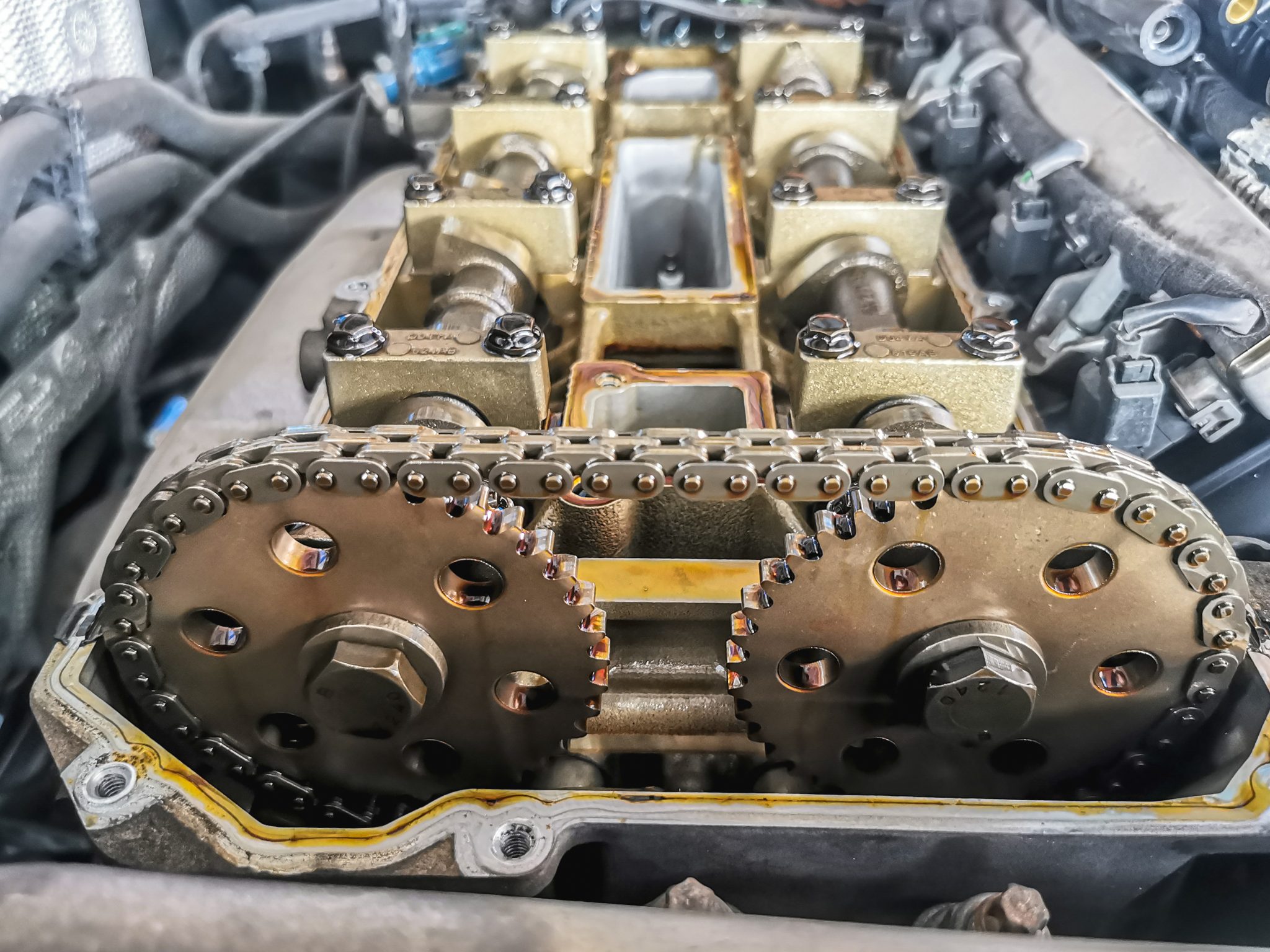
This nightmarish tale from u/TimingTrauma involves a Honda K-series engine rebuild. After meticulously assembling everything, they rotated the engine by hand to verify timing – or so they thought. What they missed was a single tooth off on the cam gear. Upon startup, the valves kissed the pistons in a mechanical symphony of destruction. “The sound still haunts me,” they wrote. “Like a blender full of pennies.” Final cost: $8,000 for a complete engine rebuild.
Prevention & Solution:
- ALWAYS verify timing marks multiple times before startup
- Use timing pins or locking tools specific to your engine
- Take photos of timing marks before disassembly
- Rotate the engine through two full cycles by hand before starting
- Consider having a second person verify critical timing steps
- If anything feels off during manual rotation, stop immediately
- Invest in a borescope to verify valve clearance before startup
7. The Jack Stand Catastrophe
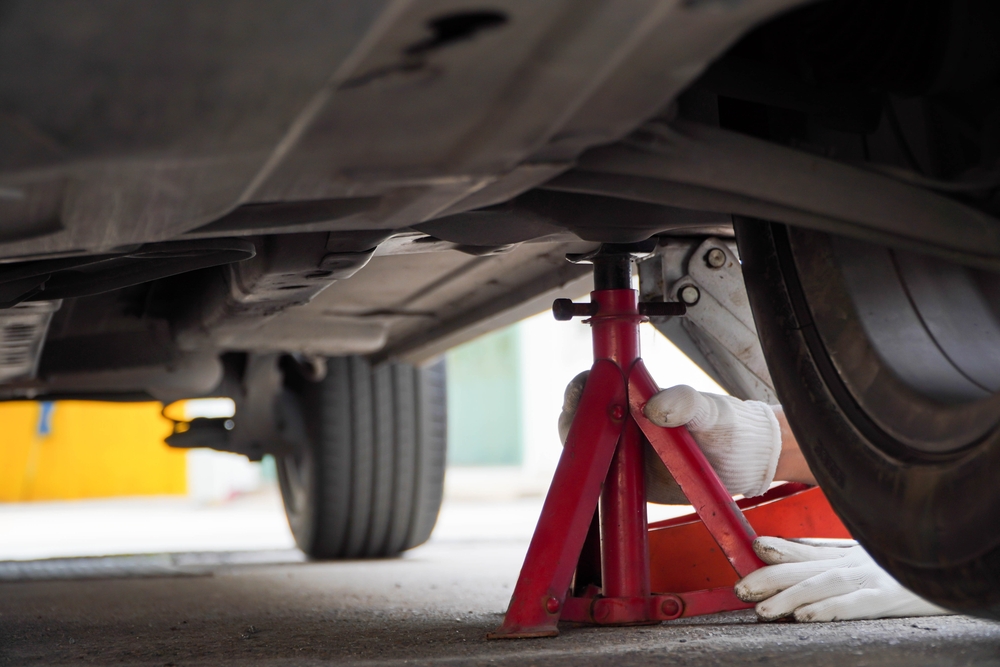
“I still get cold sweats thinking about it,” writes u/LuckyEscape2023, recounting how their improperly positioned jack stand buckled during an oil change. Their 1969 Mustang crashed down, missing them by inches and crushing their restoration project’s frame rails. “The sound of twisting metal was like something out of a horror movie,” they recalled. The improper lift point caused $7,000 in frame damage and nearly cost them their life.
Prevention & Solution:
- Always use factory-specified lift points (check your manual)
- Use multiple jack stands rated well above your vehicle’s weight
- Place wheel chocks before lifting
- Keep a backup jack ready in case of emergency
- Never substitute jack stands with wood blocks or other items
- Consider investing in a low-profile floor jack for proper placement
- ALWAYS have a spotter present when working under vehicles
8. The Spark Plug Surprise
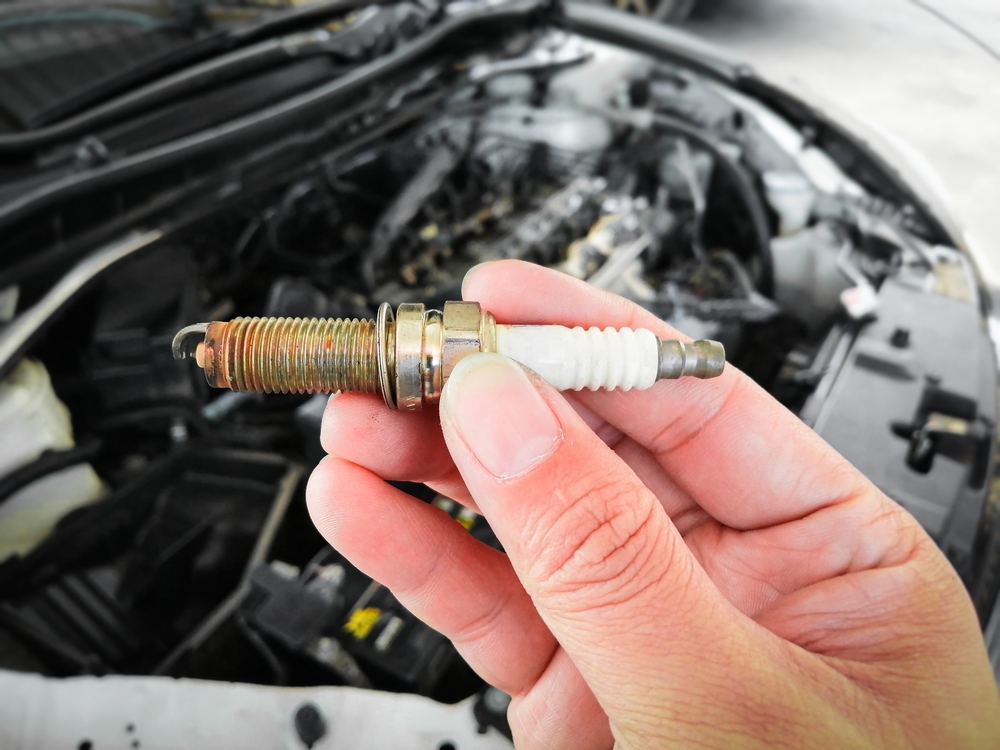
“It was like a champagne cork from hell,” recalls u/PluggedPanic, describing how a cross-threaded spark plug violently ejected from their Ford Triton V8. They attempted a routine plug change without using a torque wrench or thread chaser. The result? The plug shot out like a missile, taking the threads and part of the head with it. “I found the plug embedded in my garage ceiling,” they wrote. Cost of repair: $3,800 for cylinder head replacement and machining.
Prevention & Solution:
- Always use a torque wrench for spark plugs
- Clean and chase threads before installation
- Use anti-seize compound as recommended by manufacturer
- Remove and install plugs only when engine is cold
- Consider using thread repair inserts for damaged holes
- Keep plug socket extensions secured with rubber O-rings
- When in doubt, have a professional handle plug replacements
- Research known issues for your specific engine model
9. The Diagnostic Disaster
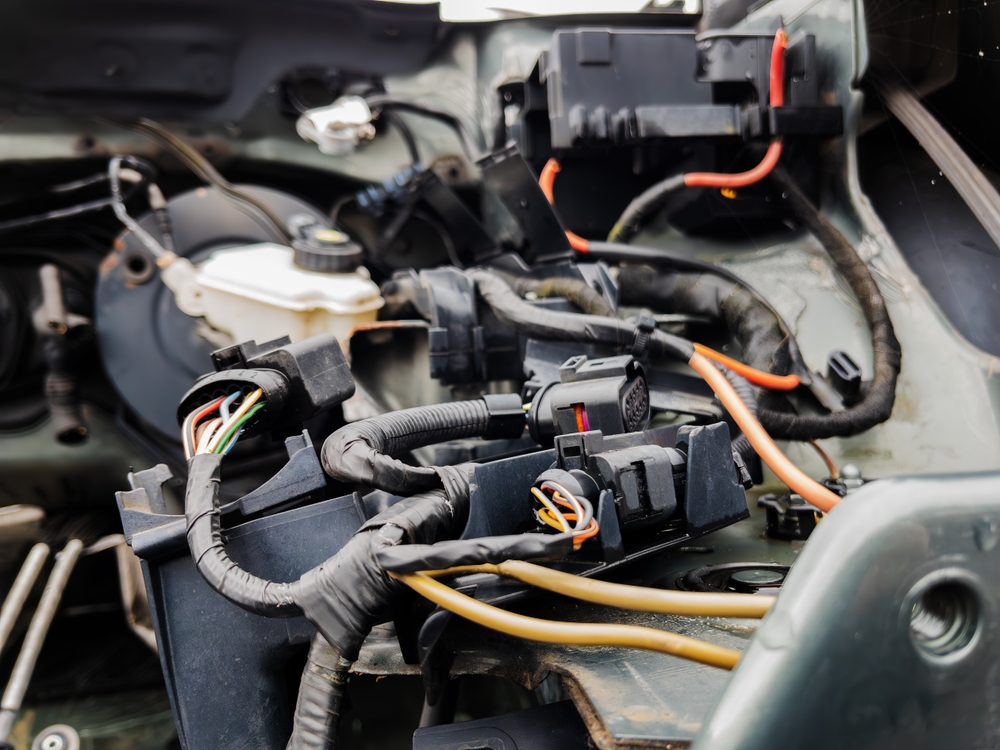
u/CodeReader2022 shared their desperate tale of chasing an engine misfire. After replacing spark plugs, coils, injectors, and even the ECU, they discovered the real issue: a pinched wire in the harness they had carelessly reinstalled months earlier. “I spent $2,300 replacing perfectly good parts,” they lamented. “All because I couldn’t be bothered to properly secure a $2 wiring connector.”
Prevention & Solution:
- Always verify diagnostic codes before replacing parts
- Document and photograph wire routing before removal
- Use proper wiring diagrams and repair manuals
- Test components before replacement
- Invest in quality diagnostic tools
- Follow proper troubleshooting sequences
- Consider professional diagnosis for complex issues
- Keep detailed records of all repairs and changes
10. The Filter Fiasco
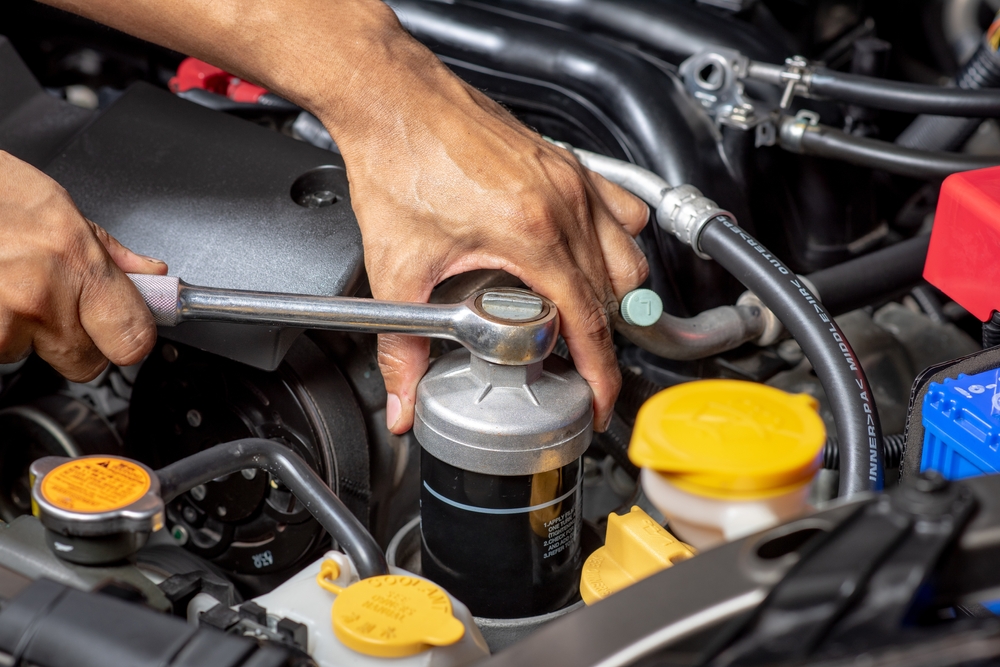
The final nightmare comes from u/FilterFailure, who described their attempt at a “simple” oil filter change on their Mercedes-AMG. Using a universal filter wrench, they crushed the filter housing, causing it to leak. Worse, metal fragments from the damaged filter contaminated the entire oil system. “What should have been a $50 oil change turned into a $9,000 engine teardown,” they wrote. “All because I tried to save $20 on the proper filter tool.”
Prevention & Solution:
- Always use manufacturer-specified tools for filter changes
- Verify filter part numbers before installation
- Pre-fill filters when possible to reduce dry starts
- Lubricate filter gaskets properly
- Never over-tighten filters
- Keep filter removal tools specific to your vehicle
- Document filter positions and orientations
- Consider using an oil analysis service to detect early problems
Tackle Your Next Workshop Session With Confidence
Car repairs don’t have to be a nightmare. By understanding potential pitfalls and taking proactive steps, you can tackle most DIY projects with confidence. Remember, the right tools and products make all the difference, and our range of INOX lubricants, greases and cleaners are here to help you avoid some of the most common disasters.
Don’t wait for a car repair horror story to unfold. Find our products at your nearest retailer today and keep your car running smoothly, no matter the challenge!
